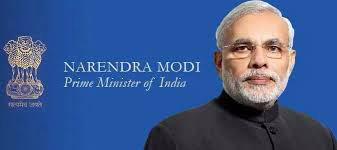During his opening remarks at the Paris Climate Summit (COP21), India Prime Minister Modi announced the launch of the International Solar Alliance.
Speaking about the 120 countries already signed up, Modi says: "What we are putting in place is an avant garde of countries that believe in renewable energies. What we are showing here is an illustration of the future Paris accord, as this initiative gives meaning to sharing technology and mobilising financial resources in an example of what we wish to do in the course of the climate conference.

Countries signed a Declaration to launch the Alliance, which includes the incredible goal of mobilizing $1 trillion for the effort by 2030 – to deploy 1 terawatt of solar.
It says, "United by our objective to significantly augment solar power generation in our countries, we intend making joint efforts through innovative policies, projects, programmes, capacity building measures and financial instruments to mobilize more than 1000 Billion US Dollars of investments that are needed by 2030 for the massive deployment of affordable solar energy."
The goal is to spread solar across the developing world through concerted efforts that cut the costs of solar technology and financing. The Alliance will be based at India’s National Institute of Solar Energy and run by an international steering committee. Modi hopes to raise an initial $400 million from membership fees.
"We intend working together towards the development of appropriate benchmarks, facilitating resource assessments, supporting research and development and demonstration facilities, with a view to encouraging innovative and affordable applications of solar technologies," the Declaration says.
Terrawatt Initiative Launches
A parallel effort also launched – The Terrawatt Initiative – which will work with the Alliance to establish the "proper regulatory conditions for massive deployment of competitive solar." This private sector initiative will mobilize financial and corporate support for the Alliance.
It will identify the best regulatory practices that can lead to fast and cost-effective deployment, help countries implement them, and develop and manage an online marketplace for solar financing.
"The ambitions of the International Solar Alliance seem perfectly achievable and respond to a strong expectation from the market. Indeed, resources from solar are well-known, technology is available, capital is abundant. Everything is ready to make this momentum concrete, as
soon as the regulatory framework is there. What we need is a solar common market. The private sector is willing, with great impatience, to enter now at full speed into the energy transition and design economic strategies to bring large scale solutions to the world, be it technology providers, financiers or energy companies like ENGIE," says Gérard Mestrallet, ENGIE CEO, who is behind the initiative.
"Solar technology is evolving, costs are coming down and grid connectivity is improving. The dream of universal access to clean energy is becoming more real. This will be the foundation of the new economy of the new century," says Modi.
It could be key to achieving one of the UN’s sustainable development goals: achieving universal access to renewable energy by 2030.
"The idea is that larger markets and bigger volumes will lead to even lower costs, making it possible to spur demand," explains Ajay Mathur, India’s senior negotiator and at the Paris summit.
In addition to the main goal of massively increasing Indians’ access to energy, Modi wants India to deliver the technology at home and elsewhere, rather than allowing companies from advanced nations to carve up the enormous market.
The Alliance is officially called the International Agency for Solar Policy and Application.
Read our article, India Comes Through On Climate Pledge.
Read the Declaration:
